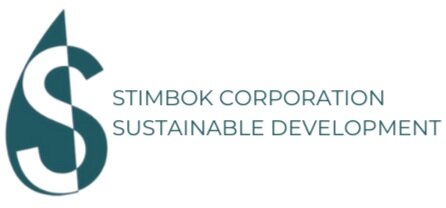
Our Zambia Story
Zambia is a landlocked country in Southern Africa with a relatively small population of 17 million strong. The country has enjoyed a relatively stable political history post-colonial era, which reduces the political risk of setting up and conducting business there in contrast to some other countries in Africa.
Although rich in natural resources, with copper as its main income earner, about two-thirds of the population is considered to be living below the poverty line. Zambia’s income earnings have been hard hit in recent years by falling commodity prices (copper), and a generally poorly performing economy.
One of the most under resourced areas in Zambia is its healthcare sector with 80% of health workers working for the struggling public sector. According to a World Health Organization report, there are about .06 physicians, .77 nurses and mid-wives per 1,000 people. Migration by healthcare workers (seeking an increased living standard) to urban areas, especially leaves the rural areas vulnerable to healthcare crises such as the recent Covid-19 pandemic. A weak pharmaceutical and healthcare supply chain, inadequate laboratory facilities, inadequate human and financial resources remains an impediment to the government’s response to public health issues facing the Zambian population. The Zambian government’s COVID-19 screening and testing has been especially hampered by a lack of testing reagents and supplies, lack of biosafety cabinet infrastructure as well as human resources to process and interpret results rapidly to prevent and control the spread of the pandemic.
In March of 2020, Stimbok Corporation rapidly pivoted its sustainable development efforts to include the supply of high quality, affordable Personal Protective Equipment (PPE) to a number of countries including Zambia. Recognizing the issues within the public health sector as an opportunity to make a difference, Stimbok Corp made the decision to step up its Corporate Social Responsibility initiative in Zambia. Stimbok has now set up an office locally and is working with the government to strengthen and expand Covid-19 testing capacity in the country. The public-private coalition which Stimbok is spearheading will form a bedrock for further improvements within Zambia’s healthcare sector over the coming years, in support of pillar 3 “Good Health and Well Being” of the United Nation’s sustainable development goals (SDGs).
There are many missed opportunities for COVID-19 testing in the country. People are dying in the communities without being tested as evidenced by the high number of brought-in-dead (BID) cases later established to have had COVID-19 infection. Testing numbers, in general, are very low which may have resulted in the low number of reported COVID-19 related deaths. There are limitations to the current testing protocol. The reliance on the current equipment Gene X-pert poses challenges stemming from limited access to reagents and supplies, as well as the overall cost of implementation. Rapid Diagnostic Tests (RDTs) are currently not in use for screening and triage, a process which could greatly assist the government to focus its already limited resources with the implementation of the gold standard confirmatory PCR test. Stimbok Zambia is providing support for in-country validation of an RDT with a view to scaling this up in the country to be used as a screening test in support of case identification and tracking. Support will also be provided for the identification of generic testing equipment which is not restrictive in the use of specific reagents, but still provides an equivalent to the gold standard test.
Stimbok’s Zambia team has also designed and implemented a needs assessment tool capturing the needs in the provincial laboratories for biosafety cabinet infrastructure. As a result of these assessments, Stimbok will be donating hazmat suits, gloves, and masks to outfit up to 300 provincial lab workers in a laboratory biosafety enhancement drive.
Stimbok has applied and received clearance from the University of Zambia Health Sciences Research Ethics Committee (UNZAHSREC) and from the National Health Research Authority (NHRA) for the validation and roll-out of an RDT screening test. This validation will commence shortly.
It is noteworthy that Stimbok will be developing a small private sector with a dearth of supplies and public health services that has left the needs of citizens unfulfilled. Stimbok will be donating a portion of proceeds from the sales of its Family PPE packs to the most vulnerable in Zambia. Every vulnerable family receiving assistance from Stimbok will receive this assistance in form of a PPE pack.
To be a part of this solution:
Simply purchase our Family PPE Pack and indicate the beneficiary country as Africa. There is also the option to purchase an additional Family Pack for a vulnerable family in Africa.
Are you looking to break into the pharmaceuticals/healthcare sector in Zambia? Send us an email at info@stimbok.com for your in-country market research analysis and data verification.

